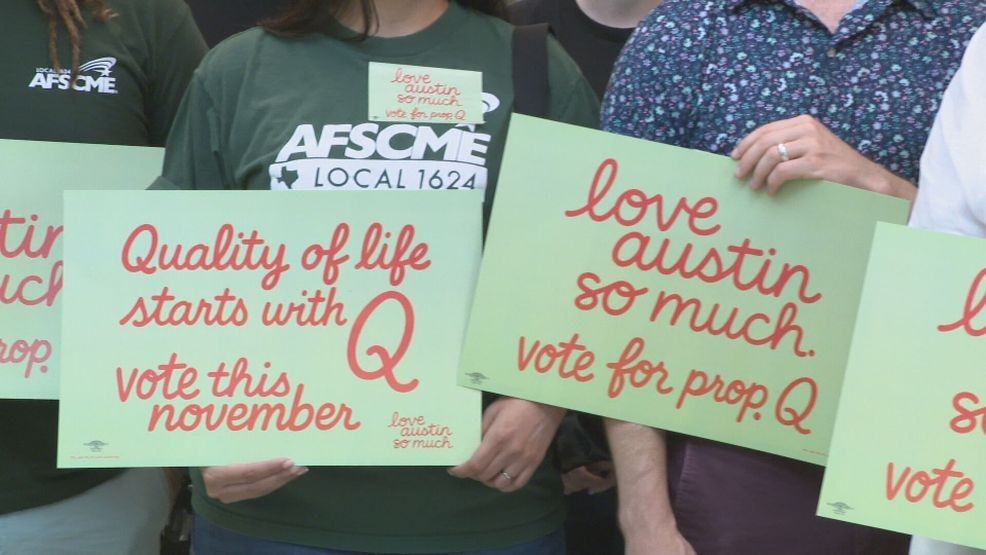AUSTIN, Texas — A week before early voting begins for the Nov. election, some city council members are coming out with their thoughts on ‘Proposition Q’. While many council members say raising property taxes to improve city services is what’s best for the city, on member on the council believes raising taxes isn’t the answer. He has another plan around this.
According to the city of Austin, ‘Proposition Q’ will raise property taxes by $.10 next year if Austinites vote yes on the Nov. ballot. The Austin Chamber of Commerce said this will increase property taxes by over 20%. The decision is up to the people of Austin after city council approved the decision for a tax-rate-election. The goal of ‘Prop Q’ is to raise property taxes to help cover the city’s historic $6.3 billion budget proposal.
“There’s no kind of magic source of money,” District 4 City councilman Jose “Chito” Vela said. “If we want quality municipal services, we’re going to need additional property tax revenue.”
RELATED NEWS | Austinites split on raising property taxes to support city services
The city of Austin is looking to increase there spending by 16.9% next year to improve city services like parks, public health and public safety. Although the idea to increase taxes for these reasons is controversial for some Austinites, Councilman Ryan Alter, said spending big dollars on city services is worth the tax hike.
“Affordability remains a top concern for me, a top concern for this council. And that’s why we really strove to make the right targeted investments. What kinds of things do we need to spend on so that we can save money in the long term?” he said.
Before the TRE was approved by council, one member, Marc Duchen, took the road less traveled. While many of his collogues support the idea of raising taxes for the budget, Duchen believes this will only hurt the city.
“We are basically putting people at risk that are not wealthy, that are working class, that are going to get priced out,” he said.
Duchen is working with the Austin City Manager, and architects of the Houston Efficiency Study to create a plan that can help the city come up with more money without having to raise taxes. He said the city of Houston has already implemented this.
“It’s a sophisticated tool that basically looks at a forensic audit, a spending audit, an organizational audit, and a performance audit. And in the process of doing that, it identifies places that we can save money without having to, say, doge-style cuts or lay people off,” he said.
Duchen believes the city of Austin will be able to find money in places they haven’t even looked at yet based on what Houston has been able to do with this plan.
“So they, for instance, found different departments that used the same vendors but weren’t achieving the same buying power for contracts. They found places where they were managing, had managers managing three or fewer people, and where the average is five to 15 people, and so they were able to flatten organizations and save money,” he said.
Early voting begins Oct. 20.

